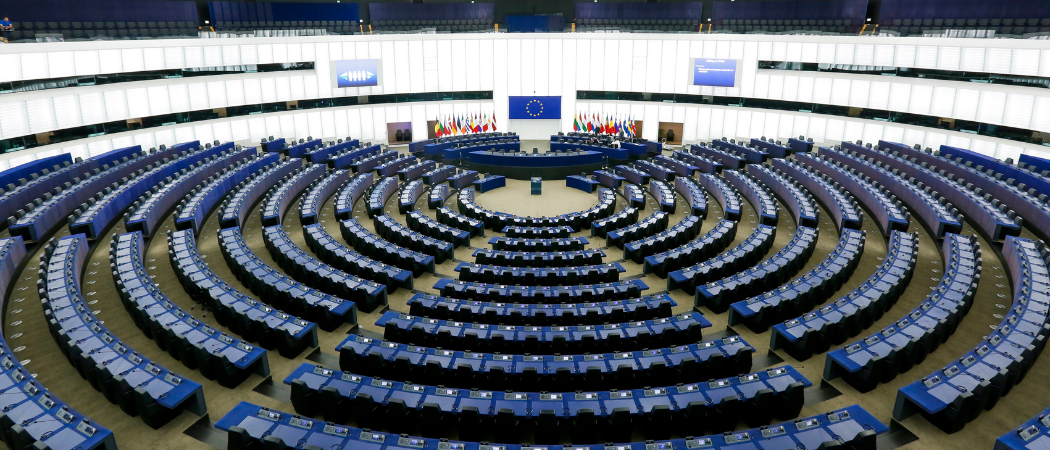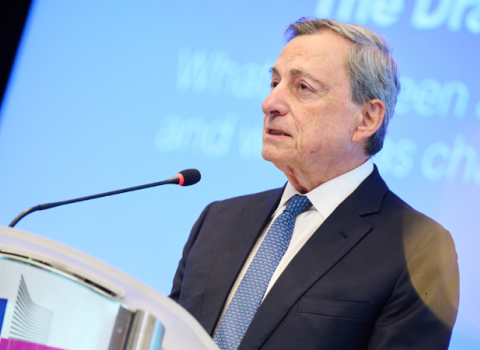The draft report says four councils should set strategic direction of the next Framework Programme

European Parliament's hemicycle in Strasbourg. Photo credits: Mathieu Cugnot / European Union
The European Parliament’s Committee on Industry, Research, and Energy (ITRE) backs the creation of new independent councils in FP10, a concept proposed in the report on the future of Framework Programme 10 published by a group of 15 experts led by former Portuguese science minister Manuel Heitor.
According to a draft report by ITRE member Christian Ehler, the current Framework Programme, Horizon Europe, fails to effectively promote excellence in science, research, and innovation – key drivers of EU competitiveness. Changes are needed for FP10, the report notes.
The draft report will be debated next week and MEPs have until next Wednesday to submit amendments, while negotiations for a final ITRE report on FP10 will continue until early next year, with a final adoption in a plenary session in the spring of 2025.
In its current form, Ehler's draft report backs a proposal by the Heitor group to establish a European Technology and Industrial Competitiveness Council to enhance private sector participation, and a European Societal Challenges Council to manage research and innovation activities addressing societal challenges with limited industry involvement.
The Heitor report also recommended doubling the budget of the European Research Council (ERC), and significantly increasing the budget of the European Innovation Council (EIC). In addition it emphasised the importance of safeguarding the independence of the ERC’s Scientific Council, and ensuring the EIC is similarly protected from pressure from member states and the Commission.
This shift towards independent councils would place the majority of FP10’s management in the hands of field experts rather than the European Commission. According to the Heitor report, these councils would help bring more companies into the programme.
In his draft report, Ehler notes that the expansion, independence, and self-governance of the ERC and the EIC should be central to FP10. Half of FP10 budget should go to these two, to accelerate the transition from fundamental science to innovation scale-up, the ITRE report says.
At the same time, the report says Pillar II would need to be simplified under FP10. “The number of instruments involved, the unsuccessful implementation of the Missions, as well as the many budgetary shifts, have resulted in unnecessary complexity which discourages applicants, and especially newcomers, from participating,” theynote.
Horizon Europe’s Pillar II receives the largest share of the budget, which funds pre-competitive research and innovation projects where academics and companies work on EU-defined challenges and priorities.
Parliament’s bucket list
The ITRE draft report advocates FP10 to remain a standalone programme and its budget increased to €220 billion. A larger budget would encourage member states to increase their investment in research and innovation, helping the EU meet the 3% GDP target set two decades ago, MEPs say.
Also, the report addresses rumours that the European Commission is moving to consolidate all research and innovation funds into a new mega Competitiveness Fund slated to launch under the upcoming multiannual budget in 2028. The MEPs argue that centralising FP10 within such a fund would undermine its ability to drive innovation. “Only if we put R&I in the lead can we expect it to contribute to our competitiveness – R&I is a long-term precondition for competitiveness, not a short-term fix,” the draft report says.
Additionally, the report calls for a less bureaucratic Framework Programme, evaluated by top experts, saying,Horizon Europe is “too complex, and calls are not relevant enough”.
The use of Missions and lump sum funding in Horizon Europe also received harsh comments from ITRE. In the committee’s view Missions have failed to meet key objectives, such as attracting external funding.
As a result, the draft report recommends rethinking this part of Horizon Europe and encourage the Commission to find alternative funding sources for the continuation of Missions, either from other parts of the EU budget, or at the national level.
Similarly, it calls for a reduction in the use of lump sum funding under Horizon Europe, arguing that it is failing in its primary goal of simplifying administration and reducing transaction costs for beneficiaries.
In another nod to the Heitor group, the draft ITRE report said it supports the introduction of ‘Choose Europe’ a new funding instrument for early-stage research careers.
Editor’s note: This article was updated 29 November to make clear that the report is a draft from the Parliamentary committee, and to explain the European Parliament process and schedule for adopting a final position on FP10.





 A unique international forum for public research organisations and companies to connect their external engagement with strategic interests around their R&D system.
A unique international forum for public research organisations and companies to connect their external engagement with strategic interests around their R&D system.